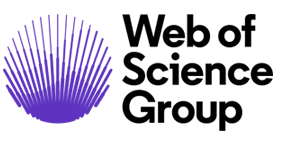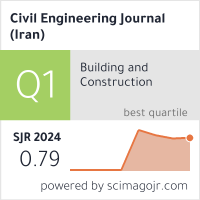Assessment of E-Waste Management and Potential for Laptop Reuse and Recycling
Downloads
Doi:10.28991/CEJ-2023-09-06-013
Full Text:PDF
Downloads
[2] Statista. (2022). PCs - Statistics & Facts. Available online: https://www.statista.com/topics/1070/pcs/#topicOverview (Accessed on April 2023).
[3] Statista. (2023). Notebook PC global shipments 2010-2026. Available online: https://www.statista.com/statistics/269048/ worldwide-portable-pc-shipment-forecast/#statisticContainer (Accessed on April 2023).
[4] Hennies, L., & Stamminger, R. (2016). An empirical survey on the obsolescence of appliances in German households. Resources, Conservation and Recycling, 112, 73–82. doi:10.1016/j.resconrec.2016.04.013.
[5] Islam, M. T., Dias, P., & Huda, N. (2021). Young consumers' e-waste awareness, consumption, disposal, and recycling behavior: A case study of university students in Sydney, Australia. Journal of Cleaner Production, 282, 124490. doi:10.1016/j.jclepro.2020.124490.
[6] Jayaraman, K., Vejayon, S., Raman, S., & Mostafiz, I. (2019). The proposed e-waste management model from the conviction of individual laptop disposal practices-An empirical study in Malaysia. Journal of Cleaner Production, 208, 688–696. doi:10.1016/j.jclepro.2018.10.125.
[7] Perkins, D. N., Brune Drisse, M. N., Nxele, T., & Sly, P. D. (2014). E-waste: A global hazard. Annals of Global Health, 80(4), 286–295. doi:10.1016/j.aogh.2014.10.001.
[8] Wu, Q., Leung, J. Y. S., Geng, X., Chen, S., Huang, X., Li, H., Huang, Z., Zhu, L., Chen, J., & Lu, Y. (2015). Heavy metal contamination of soil and water in the vicinity of an abandoned e-waste recycling site: Implications for dissemination of heavy metals. Science of the Total Environment, 506–507, 217–225. doi:10.1016/j.scitotenv.2014.10.121.
[9] Ngo, H. T. T., Watchalayann, P., Nguyen, D. B., Doan, H. N., & Liang, L. (2021). Environmental health risk assessment of heavy metal exposure among children living in an informal e-waste processing village in Viet Nam. Science of the Total Environment, 763, 142982. doi:10.1016/j.scitotenv.2020.142982.
[10] Deng, L., Babbitt, C. W., & Williams, E. D. (2011). Economic-balance hybrid LCA extended with uncertainty analysis: Case study of a laptop computer. Journal of Cleaner Production, 19(11), 1198–1206. doi:10.1016/j.jclepro.2011.03.004.
[11] Liu, R., Prakash, S., Schischke, K., & Stobbe, L. (2011). State of the Art in Life Cycle Assessment of Laptops and Remaining Challenges on the Component Level: The Case of Integrated Circuits. Towards Life Cycle Sustainability Management, 501–512. doi:10.1007/978-94-007-1899-9-49.
[12] Grzesik-Wojtysiak, K., & Kukliński, G. R. Z. E. G. O. R. Z. (2013). Screening life cycle assessment of a laptop used in Poland. Environment Protection Engineering, 39(3), 43-55. doi:10.5277/epe130304.
[13] Islam, M. T., Huda, N., Baumber, A., Shumon, R., Zaman, A., Ali, F., Hossain, R., & Sahajwalla, V. (2021). A global review of consumer behavior towards e-waste and implications for the circular economy. Journal of Cleaner Production, 316(3), 43–55. doi:10.1016/j.jclepro.2021.128297.
[14] Pan, X., Wong, C. W. Y., & Li, C. (2022). Circular economy practices in the waste electrical and electronic equipment (WEEE) industry: A systematic review and future research agendas. Journal of Cleaner Production, 365. doi:10.1016/j.jclepro.2022.132671.
[15] Yu, Z., Gao, C., Yang, C., & Zhang, L. (2023). Insight into quantities, flows, and recycling technology of E-waste in China for resource sustainable society. Journal of Cleaner Production, 393, 136222. doi:10.1016/j.jclepro.2023.136222.
[16] Anand, A., Jha, M. K., Kumar, V., & Sahu, R. (2013, December). Recycling of precious metal gold from waste electrical and electronic equipments (WEEE): A review. Proceedings of the XIII International Seminar on Mineral Processing Technology (MPT-2013), 10-12 December, 2013, Jointly organized by CSIR-Institute of Minerals and Materials Technology & Indian Institute of Mineral Engineers, Bhubaneswar, India.
[17] Narayanswamy, N., Rajak, A. A., & Hasan, S. (2022). Development of Computer Vision Algorithms for Multi-class Waste Segregation and Their Analysis. Emerging Science Journal, 6(3), 631-646. doi:10.28991/ESJ-2022-06-03-015.
[18] Thakur, P., & Kumar, S. (2022). Evaluation of e-waste status, management strategies, and legislations. International Journal of Environmental Science and Technology, 19(7), 6957–6966. doi:10.1007/s13762-021-03383-2.
[19] Tesfaye, F., Lindberg, D., Hamuyuni, J., Taskinen, P., & Hupa, L. (2017). Improving urban mining practices for optimal recovery of resources from e-waste. Minerals Engineering, 111, 209–221. doi:10.1016/j.mineng.2017.06.018.
[20] Fadlil, A., Umar, R., & Nugroho, A. S. (2022). Comparison of machine learning approach for waste bottle classification. Emerging Science Journal, 6(5), 1075-1085. doi:10.28991/ESJ-2022-06-05-011.
[21] Hien, N.T. & Thao, T.P. (2019). Recycling of electronic waste in Vietnam and some recommendations. Journal of Science & Technology, 53, 101-106. (In Vietnamese).
[22] Cam, B.D., Trung, D.Q., Thung, N.X., Thao, T.T., Quang, C.X., Dai, T.X., Huong, D.V., & Ha, N.M. (2013). Investigation of the situation and development of the e-waste management, recycling technology models (television, personal computer, mobile-phone, refrigerator) in the Northern Key Economic Zone (Vietnam) during the period of 2010-2020. University of Natural Sciences, Ha Noi National University. (In Vietnamese).
[23] Zhu, Q., Geng, Y., & Lai, K. hung. (2011). Environmental supply chain cooperation and its effect on the circular economy practice-performance relationship among Chinese manufacturers. Journal of Industrial Ecology, 15(3), 405–419. doi:10.1111/j.1530-9290.2011.00329.x.
[24] Zhang, L., Qu, J., Sheng, H., Yang, J., Wu, H., & Yuan, Z. (2019). Urban mining potentials of university: In-use and hibernating stocks of personal electronics and students' disposal behaviors. Resources, Conservation and Recycling, 143, 210–217. doi:10.1016/j.resconrec.2019.01.007.
[25] Department of Administration and Planning (2023). Statistical report for the fourth quarter of 2022. Department of Administration and Planning, Hanoi, Vietnam. Available online: https://dap.ctu.edu.vn/so-lieu-thon/88-so-lieu-thong-ke-quy-3-2035.html. (Accessed on April 2023). (In Vietnamese).
[26] Abbondanza, M. N. M., & Souza, R. G. (2019). Estimating the generation of household e-waste in municipalities using primary data from surveys: A case study of Sao Jose dos Campos, Brazil. Waste Management, 85, 374–384. doi:10.1016/j.wasman.2018.12.040.
[27] Messmann, L., Boldoczki, S., Thorenz, A., & Tuma, A. (2019). Potentials of preparation for reuse: A case study at collection points in the German state of Bavaria. Journal of Cleaner Production, 211, 1534–1546. doi:10.1016/j.jclepro.2018.11.264.
[28] Kumar, N., Sinwar, D., Saini, M., Saini, D. K., Kumar, A., Kaur, M., Singh, D., & Lee, H. N. (2022). Efficient computational stochastic framework for performance optimization of E-waste management plant. Journal of King Saud University - Computer and Information Sciences, 34(8), 4712–4728. doi:10.1016/j.jksuci.2022.05.018.
[29] Liao, C. S., & Chuang, H. K. (2022). Determinants of innovative green electronics: An experimental study of eco-friendly laptop computers. Technovation, 113, 102424. doi:10.1016/j.technovation.2021.102424.
[30] Sun, B., Li, B., Ma, S., Zhu, M., Dong, C., Xiang, M., Cheng, H., & Yu, Y. (2023). The recycling potential of unregulated waste electrical and electronic equipment in China: Generation, economic value, and cost-benefit analysis. Journal of Cleaner Production, 402, 136702. doi:10.1016/j.jclepro.2023.136702.
[31] Woidasky, J., & Cetinkaya, E. (2021). Use pattern relevance for laptop repair and product lifetime. Journal of Cleaner Production, 288, 125425. doi:10.1016/j.jclepro.2020.125425.
- Authors retain all copyrights. It is noticeable that authors will not be forced to sign any copyright transfer agreements.
- This work (including HTML and PDF Files) is licensed under a Creative Commons Attribution 4.0 International License.![]()















